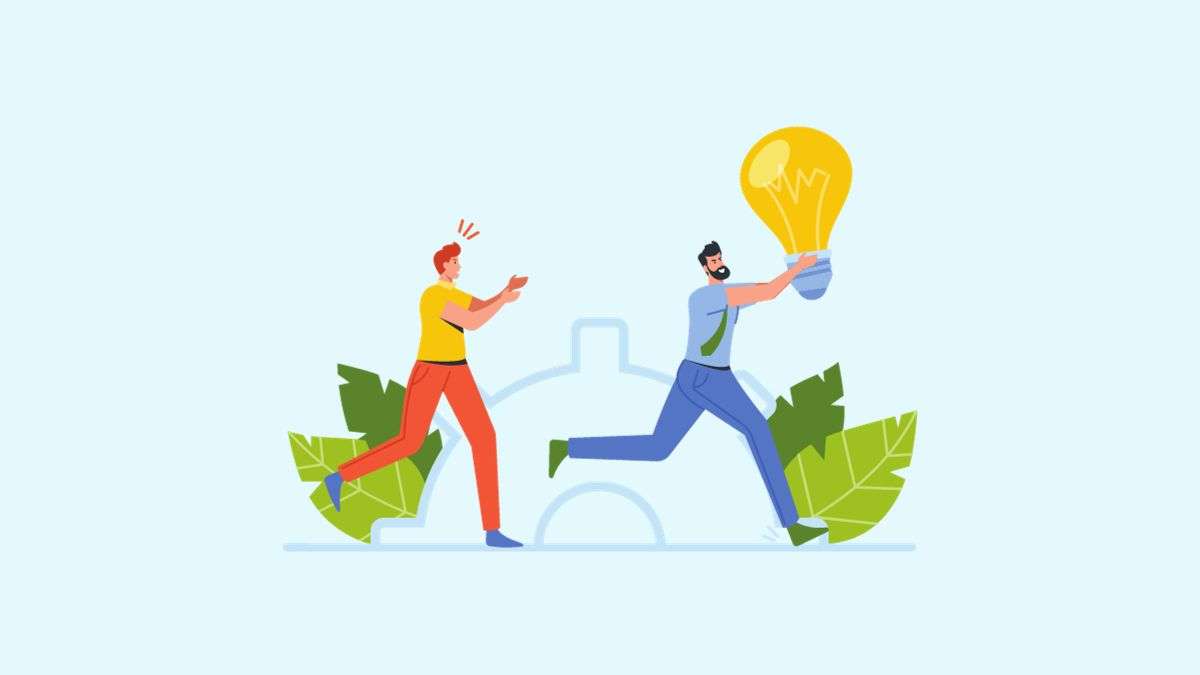Table of Contents
- Introduction
- Understanding Copyright Law and Fair Use
- Identifying Copyright Infringement in Publishing
- Ramifications of Copyright Infringement in Publishing
- Real-world Examples of Copyright Infringement in Publishing
- Navigating Copyright Challenges Ethically
- Conclusion
Introduction
The write-up explores copyright infringement in publishing. Copyright infringement occurs when someone uses, distributes, or creates derivative works from a creative work without permission from the copyright holder.
In publishing, this commonly occurs when an author extensively quotes or closely paraphrases from another work without citing it or getting permission. It also happens when people share digital copies of ebooks without authorization. Copyright law gives creators exclusive rights over the reproduction and distribution of their works, so violating these rights constitutes infringement.
Why must authors, publishers, and content creators understand the implications of copyright infringement? Copyright infringement exposes creators and publishers to substantial legal liability. An infringement finding can lead to monetary damages, halted distribution of the infringing work, and harm one’s professional reputation.
For indie authors and small presses significantly, accusations of willful infringement could seriously impact their limited resources or ability to get insured and distributed. By understanding copyright in publishing, creators can properly cite and license third-party material, manage permissions requests, and avoid unintended infringement that might occur through practices like using song lyrics as epigraphs without consent. Copyright education allows authors and publishers to ethically share their ideas without illegally coopting others’.
Understanding Copyright Law and Fair Use
Copyright law is essential for authors, publishers, and content creators to understand. At its core, copyright grants certain exclusive rights to the creator of an original work, including the rights to reproduce, distribute, publicly perform, publicly display, and create derivative works based on the original. These rights allow creators to control how their work is used and benefit financially from its distribution and monetization. Understanding these will allow us to navigate the issue of copyright infringement in publishing.
In the publishing industry, copyright applies to any original literary, artistic, musical, or dramatic work fixed in a tangible medium like print or digital text. This includes fiction and nonfiction books, poems, song lyrics, articles, photographs, illustrations, and other content. Copyright protects the expression of ideas, not the ideas themselves. For example, an author holds copyright over the precise text and wording used to convey information or tell a story but not over general concepts, facts, or news events described in their work.
Publishers typically acquire copyrights from authors through publishing contracts. However, there are exceptions like work-for-hire arrangements where the publisher holds the copyright. As a copyright holder, publishers have the exclusive rights mentioned above and can authorize others to exercise those rights through licensing agreements.
Fair use is an essential defense against claims of copyright infringement. Under the fair use doctrine, reproduction of copyrighted material for criticism, commentary, news reporting, teaching, scholarship, or research may be permissible under certain circumstances. When determining if a particular use of a work is fair use, courts evaluate factors like:
- The purpose and character of the use
- The nature of the copyrighted material
- The amount and substantiality copied
- The potential market effect of the copying
In publishing, fair use most often comes into play with excerpts. For example, a book reviewer quoting passages from a book to analyze or a scholar incorporating quotes from other sources as evidence within a research paper may qualify as fair use. However, extensive verbatim reproduction is unlikely to be considered fair use.
Documenting your fair use rationale and only using as much as reasonably needed for your purpose will help strengthen a fair use defense. It’s also best to seek legal guidance around fair use instead of making assumptions, as determining fair use can be complex.
Identifying Copyright Infringement in Publishing
How can authors and publishers recognize potential copyright infringement in publishing? Thorough research and due diligence are critical. When using any external sources during the writing process, it is essential to verify copyright permissions. Quotes, images, data sets, and substantial portions of other works require attribution or licensing to avoid plagiarism claims.
Conducting Copyright Research
Before submitting a manuscript for publication, authors should research any non-original portions to determine copyright status. Some strategies include:
- Searching online databases to identify the rights-holder for quotes, images, etc. used
- Contacting the original publisher/creator to request permissions if the work is still under copyright
- Reviewing fair use guidelines to assess if quotations or other content qualify as permissible unlicensed use
If the copyright ownership cannot be determined, it may be safest to omit or replace that content. Relying on fair use as a defense can be risky without legal guidance.
Due Diligence in Publishing
Beyond authors, publishers also need processes to evaluate submissions for potential copyright issues, including:
- Questionnaires for authors regarding copyrighted content included
- Internal reviews of manuscript materials for permissions/licensing needs
- Procedures around obtaining licenses for any third-party material identified
Having robust due diligence procedures shows a reasonable faith effort to avoid infringement. However, mistakes occasionally slip through, underscoring why copyright literacy across the publishing process is vital.
Ramifications of Copyright Infringement in Publishing
Copyright infringement in publishing can have serious legal, financial, and reputational consequences. If an author, publisher, or other content creator is found guilty of willful copyright infringement, they may face substantial statutory damages, reaching up to $150,000 per infringed work.
Legal Ramifications
In addition to statutory damages, those found guilty of copyright infringement may be responsible for paying the copyright holder’s lost profits and attorney’s fees. They also risk facing injunctions forcing them to halt distribution and sales of the infringing material. Depending on the severity of the infringement, criminal charges are also possible.
Financial Loss
Beyond direct financial penalties, copyright infringement threatens an organization or individual’s bottom line in multiple ways. Infringing content may be forcibly removed from distribution channels, resulting in lost sales. Future revenue streams can also take a hit if consumers lose trust in a brand due to infringement allegations. Legal fees can amount to hundreds of thousands of dollars, even if damages are not awarded in court.
Reputational Damage
In today’s highly connected online landscape, accusations of copyright infringement can spread rapidly, leading to immense reputational damage. Consumers and partners alike are likely to view infringing entities far more negatively. Such reputational hits make securing future opportunities and relationships much more difficult.
Real-world Examples of Copyright Infringement in Publishing
Copyright infringement in publishing has been a significant issue, with several high-profile cases highlighting the challenges authors and publishers face. Here are examples of real-world cases that have shaped the understanding and enforcement of copyright law in literary works:
- Harper & Row v. Nation Enterprises (1985): This case involved The Nation Magazine publishing excerpts from President Ford’s unpublished memoirs without authorization. Harper & Row Publishers had the exclusive right to publish these memoirs. The Supreme Court ruled against The Nation, emphasizing that the unauthorized use of the material, which represented the “heart of the book,” did not qualify for the fair use exception.
- Suntrust Bank v. Houghton Mifflin (2001): The case revolved around the publication of The Wind Done Gone, a parody of the classic Gone With The Wind. Suntrust Bank, holding the copyrights to the original novel, sued Houghton Mifflin for infringement. However, the Eleventh Circuit found that the new book’s use of the original qualified for the fair use exception due to its parodic nature, which critiqued the romantic depiction of slavery in the American South.
- Authors Guild v. Google (2015): Google was sued for scanning and digitizing over twenty million books as part of its Google Books project. The Second Circuit found Google’s actions to be “highly transformative” because they aimed to provide information about the books, not convey them themselves. The limited text displayed to users did not substitute for the original works, leading to a ruling favoring fair use.
- Dr. Seuss Enterprises v. ComicMix (2020): Dr. Seuss Enterprises sued ComicMix for their book Oh, the Places You’ll Boldly Go!, which combined elements of Dr. Seuss’s work with Star Trek. The Ninth Circuit found that this mash-up was not a parody and did not critique or comment on the original work. Thus, it was not transformative. The court ruled that the new book did not qualify for the fair use exception as it targeted the same market as the original.
- Hachette v. Internet Archive (2020): Four major publishing companies sued the Internet Archive for providing free access to scanned digital copies of copyrighted books through a Controlled Digital Lending program. The Southern District of New York ruled against the Internet Archive, stating that their actions were not transformative and negatively impacted the market for licensed ebooks, rejecting the fair use defense.
These cases illustrate the complexities of copyright law in the publishing industry and the ongoing efforts to balance the rights of copyright holders with the public’s access to literary works.
Navigating Copyright Challenges Ethically
Copyright issues can present tricky challenges for those working in publishing. On the one hand, respecting others’ intellectual property rights is crucial. However, excessive restrictions around copyrights can also hamper creativity and innovation. So, how can publishers, authors, and content creators ethically navigate potential copyright disputes?
Conduct Thorough Research Before Publishing
The best defense against copyright infringement claims is conducting comprehensive research beforehand. Before including any non-original content, double-check that:
- The material is in the public domain
- Proper permissions have been granted
- Your use qualifies as fair use
Document your research process thoroughly. Evidence that due diligence was performed can strengthen an infringement defense, even if some issues slipped through inadvertently.
Understand Fair Use Best Practices
While fair use laws aim to spur creativity, they can be open to interpretation. Familiarize yourself with fair use best practices, such as:
- Using only small portions of copyrighted works
- Transforming content by adding new expression or meaning
- Using quotations and excerpts to complement your analysis
Seeking legal advice around fair use can also help avoid issues. Overall, though, err on caution if you are unsure.
Foster an Ethical Culture
Promoting a culture of integrity around copyrights is vital. Ensure teams understand policies and legal obligations. Encourage asking questions when uncertain. Have robust review procedures to catch problems early. By making ethical practices a collective priority, publishers can uphold IP rights while still releasing innovative content.

With research, fair use discretion, and an ethical culture, publishers can take a balanced approach to copyrights. This allows respecting others’ creations while advancing fresh ideas that move industries forward.
Conclusion
As explored throughout this guide, copyright infringement in publishing is a complex issue with profound legal and ethical implications. By summarizing some key takeaways, we can reinforce the most critical points to remember.
Understanding basics like fair use, public domain, and derivative works is essential whether you are an author, publisher, or content creator. Seeking legal counsel when questions arise can help prevent missteps.
From financial penalties to loss of credibility, the impacts of copyright infringement should not be underestimated. Prioritizing ethical practices protects both individual and organizational interests.

1 thought on “Copyright Infringement in Publishing”